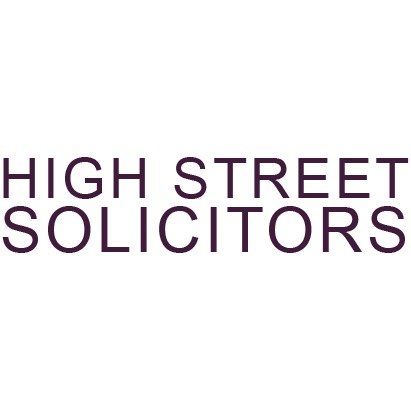Best Premises Liability Lawyers in Liverpool
Share your needs with us, get contacted by law firms.
Free. Takes 2 min.
List of the best lawyers in Liverpool, United Kingdom
About Premises Liability Law in Liverpool, United Kingdom:
Premises liability law in Liverpool, United Kingdom pertains to injuries individuals suffer on another's property due to potentially harmful conditions. This includes private homes, businesses, or public properties. Property owners have a duty of care to ensure their premises are safe for visitors. If this duty is breached, resulting in injuries, the injured party may be entitled to compensation under premises liability law.
Why You May Need a Lawyer:
Legal help in premises liability cases may be required when an individual is injured on someone else's property due to the owner's negligence. For instance, this may include faulty staircases, wet floors without signage, poor lighting or inadequate security. A lawyer can evaluate your case, guide you through the legal process, and help secure possible compensation for medical bills, pain and suffering, lost wages, or even rehabilitation costs.
Local Laws Overview:
In Liverpool, premises liability laws fall under the wider UK context of negligence law and the Occupier’s Liability Act 1957. The law states an 'occupier', or a person who controls the premises, owes a common duty of care towards visitors. If a visitor is injured due to the occupier's failure to take reasonable care in ensuring safety, they can be held liable. Special rules apply to incidents involving children or professionals carrying out work on the property.
Frequently Asked Questions:
What is a 'duty of care' in premises liability?
'Duty of care' refers to the legal obligation of property owners to ensure the safety of an individual on their premises. This includes carrying out necessary maintenance, resolving hazards, or adequately warning visitors of potential risks.
What evidences are needed for a premises liability claim?
To successfully make a claim, it’s often necessary to provide medical evidence of the injury, proof that the person in control of the premises was aware of the hazard, and any documentation like photographs, witness testimonies, or accident reports that back up your case.
How long do I have to make a premises liability claim?
In most cases, you have three years from the date of the accident to make a claim. However, if the injured party is a minor, the three-year limit starts from their 18th birthday.
Can I make a claim if I was partially responsible for my injury?
Yes, under UK law, if you were partially responsible or 'contributorily negligent', you can still make a claim. However, your compensation might be reduced based on the degree of your fault.
Does premises liability only apply to buildings?
No, 'premises' extends beyond buildings and can include gardens, driveways, paths, and other parts of a property where the occupier has control.
Additional Resources:
Your local Citizens Advice Bureau can provide valuable guidance on premises liability. Additionally, the Law Centres Network across Liverpool offers free legal advice and representation. For detailed legislation, the UK government's official website, legislation.gov.uk, provides full access to UK law.
Next Steps:
If you need legal assistance in a premises liability case, it's advisable to consult a solicitor specializing in personal injury. Gather as much evidence as you can about the incident, including photographs, medical reports, and witness contact details. Pertaining to the time-sensitive nature of these cases, it’s recommended to begin the legal process promptly.
Lawzana helps you find the best lawyers and law firms in Liverpool through a curated and pre-screened list of qualified legal professionals. Our platform offers rankings and detailed profiles of attorneys and law firms, allowing you to compare based on practice areas, including Premises Liability, experience, and client feedback.
Each profile includes a description of the firm's areas of practice, client reviews, team members and partners, year of establishment, spoken languages, office locations, contact information, social media presence, and any published articles or resources. Most firms on our platform speak English and are experienced in both local and international legal matters.
Get a quote from top-rated law firms in Liverpool, United Kingdom — quickly, securely, and without unnecessary hassle.
Disclaimer:
The information provided on this page is for general informational purposes only and does not constitute legal advice. While we strive to ensure the accuracy and relevance of the content, legal information may change over time, and interpretations of the law can vary. You should always consult with a qualified legal professional for advice specific to your situation.
We disclaim all liability for actions taken or not taken based on the content of this page. If you believe any information is incorrect or outdated, please contact us, and we will review and update it where appropriate.









